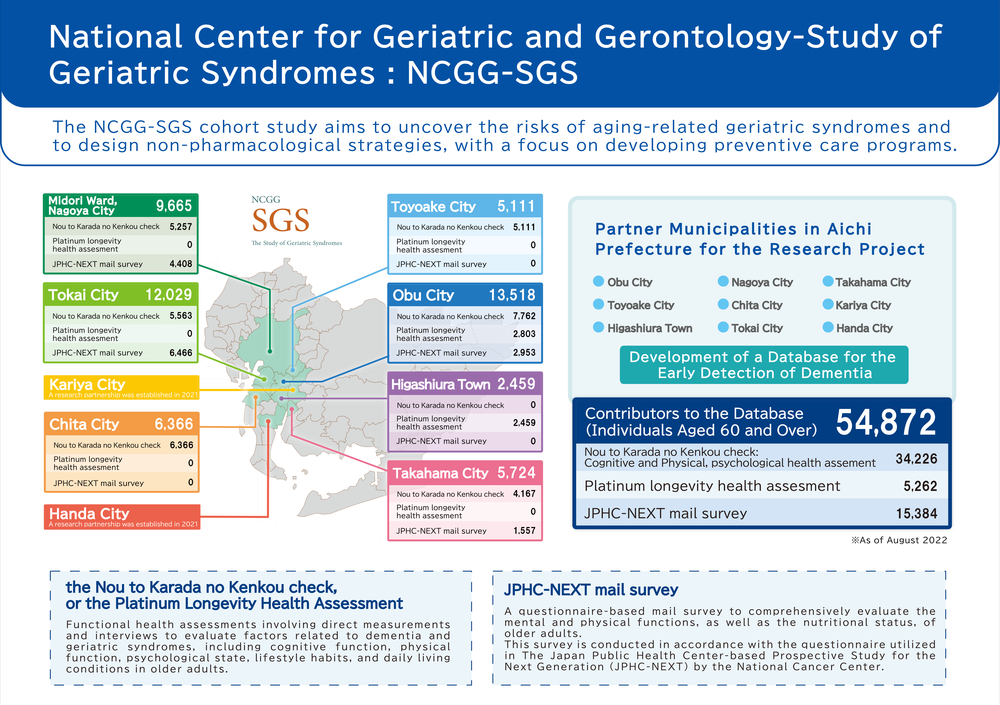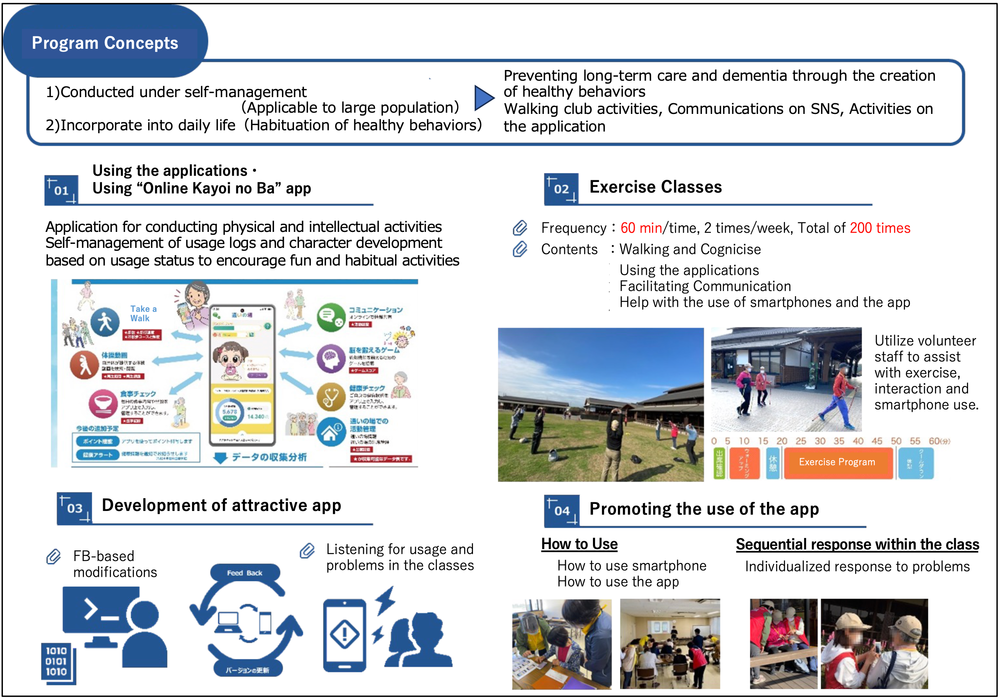Laboratories
- Back
- Top > Laboratories > Aging Research(Partnership field) > Cognitive Function Research
Aging Research(Partnership field)Cognitive Function Research
Introduction
This department is based on the system of linked graduate school between National Center for Geriatrics and Gerontology (NCGG) and Nagoya University. Research activities are conducted at NCGG and focus on the following themes.
- To identify risk factors for dementia, a cohort study of community-dwelling older adults is being conducted. The study targets approximately 55,000 individuals, mainly in municipalities around Chita Peninsula, Aichi Prefecture, and follows up on the onset of dementia.
- For populations at high risk of developing dementia (e.g., those with mild cognitive impairment) and for older adults as a whole for primary prevention, we are building evidence to support non-pharmacological interventions to reduce dementia risk.
Please see the website of the Center for Gerontology and Social Science for more details.
Research Projects
1) Cohort Study (National Center for Geriatrics and Gerontology - Study of Geriatric Syndromes: NCGG-SGS)
The risk of developing dementia increases with age, and because dementia is not a fatal disease, its prevalence rises with societal aging. However, the incidence rate is relatively low, so identifying dementia risk factors requires long-term follow-up of a large population. In the NCGG-SGS, community-dwelling older adults are surveyed through questionnaires, physical fitness tests, cognitive assessments, blood tests, and other methods to gain a comprehensive picture of the elderly. Subsequently, follow-up on dementia onset is conducted using data such as the Japanese public long-term care insurance certification and medical receipt records.
Figure 1. Target regions for the cohort study
2) Evidence Development Research
As no definitive evidence yet exists for effective dementia prevention methods, developing and verifying such methods is an urgent priority. Preventing the onset of dementia requires both reducing risk factors and enhancing protective factors. Previous studies have highlighted specific preventive measures, including managing lifestyle-related diseases, maintaining physical activity, healthy diet, avoiding smoking and heavy drinking, engaging in cognitive and social activities, and addressing hearing loss. Sustained health behaviors over the long term are needed for these interventions to be effective, and establishing strategies to promote behavioral change is a critical issue. Our laboratory is developing a smartphone application to promote dementia-preventive behaviors and is conducting a randomized controlled trial involving approximately 3,500 community-dwelling older adults to verify its effectiveness.
Figure 2. Overview of dementia prevention research
Researchers and students from Nagoya University who join our laboratory will have the opportunity to access and analyze these datasets and publish results. We welcome active participation.
Faculty Members
| Faculty | Position | Department |
|---|---|---|
| SHIMADA Hiroyuki | Adjunct Professor | Cognitive Function Research |
Bibliography
- Latest
- For more information, please visit the website of the Department of Preventive Gerontology, Center for Gerontology and Social Sciences, National Center for Geriatrics and Gerontology (https://www.ncgg.go.jp/ri/lab/cgss/department/gerontology/gyoseki.html), which is constantly being updated.
Research Keywords
Dementia, Cognitive Function, Prevention, MCI, Older Adults
National Center for Geriatrics and Gerontology Official Website

